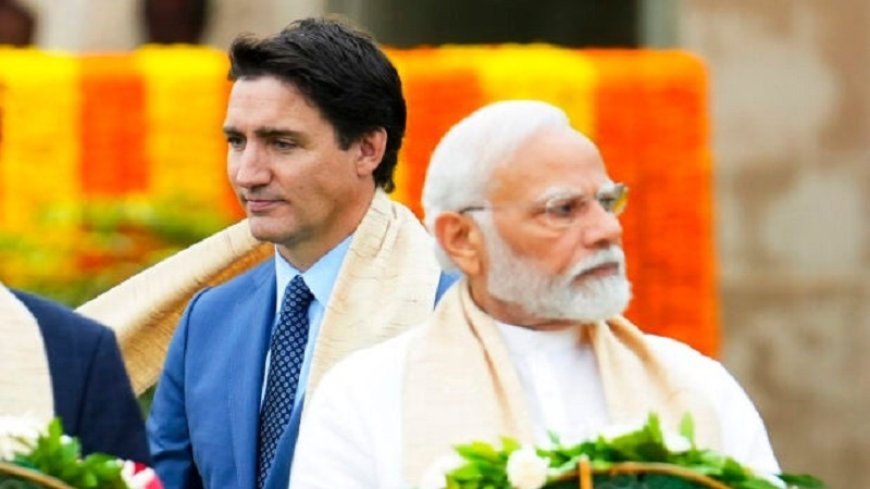Expulsion of dozens of Canadian diplomats in India
On Tuesday, the Indian government asked the Canadian government to withdraw its other 40 diplomats from the country. The demand to expel a large number of Canadian diplomats shows increasing tension in the relationship between the two countries.

The tension in the relationship between the two sides began to manifest following the recent killing in Canada of the leader of the Sikhs who want to separate in India where the Canadian government pointed the finger of blame at the New Delhi government. The Canadian government expelled the Indian diplomat following the accusations, and India retaliated.
In the second step, India has demanded the expulsion of 40 Canadian diplomats from the country, which clearly shows that the tension in the relationship between the parties has not only not decreased but continues to increase. An expert on Indian affairs, says about this matter that India is trying to face Canada as a big and important country in the world. Although the perpetrator of the murder of the leader of Sikhs who want to separate in Canada has not been identified, but by dealing strongly with Canada, India wants to show that New Delhi will not accept being accused by the West, so that a country like Canada, which is considered under British control, does not dare to give baseless accusations against him.
India's threat that if Canada does not remove its diplomats from the country by October 10, it will no longer guarantee their diplomatic immunity, is a powerful expression of New Delhi so that Ottawa will stop its interference in India's internal affairs. It seems that the Indian government, by increasing political pressure against Canada, is trying to force the country to expel the Sikhs who want to separate from the country and other opponents of the Indian government. The tension in the relationship between India and Canada From India's point of view, the current tension with Canada has provided a good opportunity for New Delhi to give diplomatic pressure to Ottawa so that it has to expel the Sikhs and other opponents of the Indian government.
It says that Western countries have become donors and shelters for dissidents, terrorists and separatists in different countries to use them as a tool to exert pressure on countries like India. AM Ram Singh, an expert in political affairs, says that, by dealing effectively with Canada, the Indian government wants to send this message to other Western countries that they should stop raising opponents of different countries and governments in order to use them as a tool to release pressure. against those governments. In any case, the expectation of a country like India for Canada is to respect the freedom and self-determination of nations, because the proud Western countries harbor and nurture the opponents of different countries, and this is in a situation where the period of such intervention is overdue.
Countries like India have shown in practice that they will not allow the West to interfere in their internal affairs through terrorist groups. For that reason, the Indian government has dismissed the statements made by Canadian leaders, including the Prime Minister of the country, about New Delhi's involvement in the killing of a Sikh leader named Hardeep Singh Najjar, and declared him a terrorist due to his separatist views. Another important point in the diplomatic war between India and Canada is that from India's point of view, the number and positions of diplomats of each country in the land of the other side should be equal and it seems that the expulsion of Canadian diplomats in India aims to balance the number of diplomats his and Canadian.
Canadian Broadcasting Corporation













































